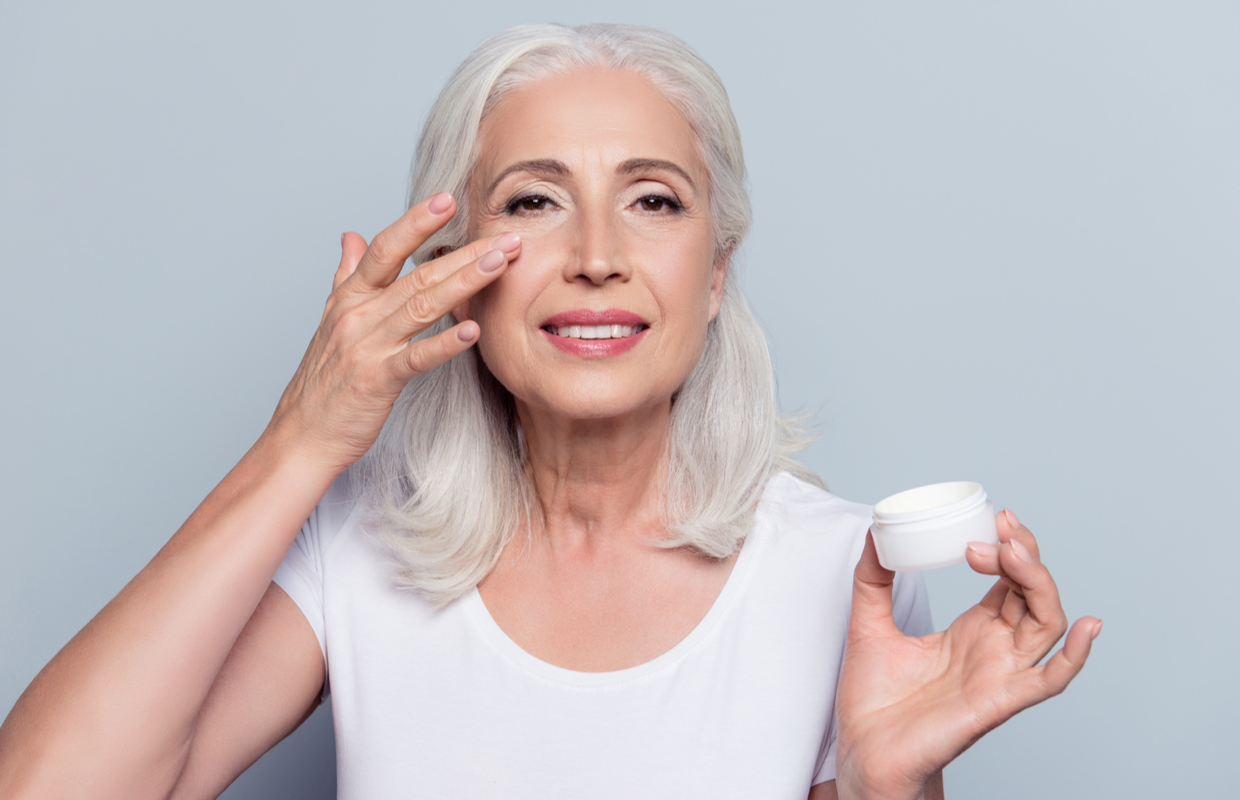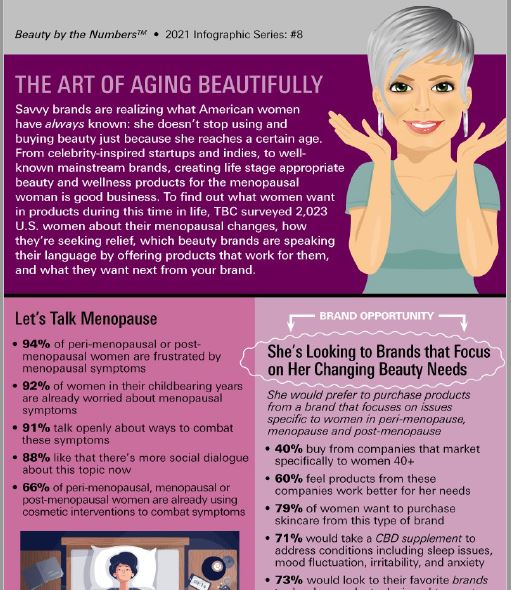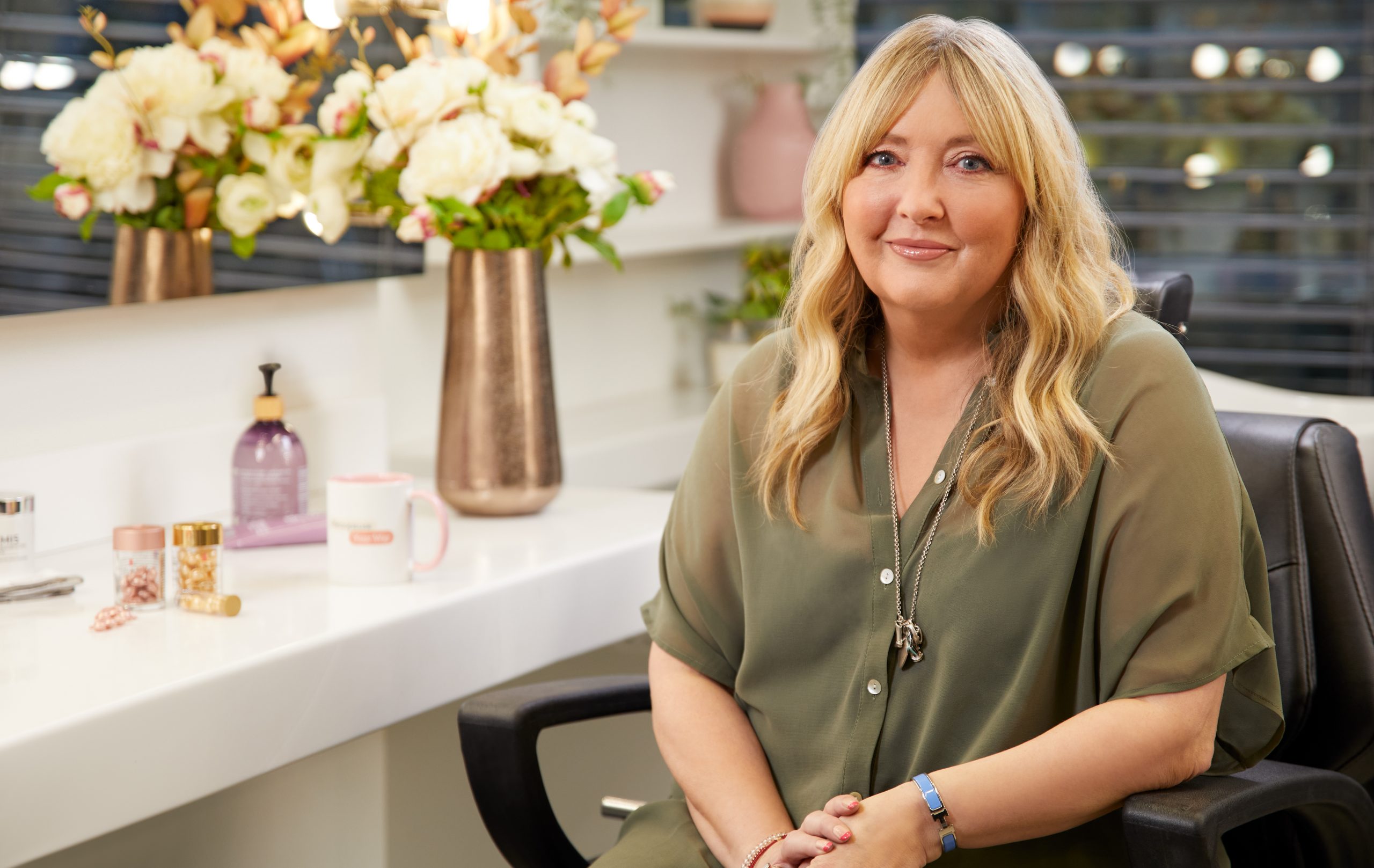Navigating the Beauty Landscape: Makeup for Menopause
Related Articles: Navigating the Beauty Landscape: Makeup for Menopause
Introduction
With great pleasure, we will explore the intriguing topic related to Navigating the Beauty Landscape: Makeup for Menopause. Let’s weave interesting information and offer fresh perspectives to the readers.
Table of Content
Navigating the Beauty Landscape: Makeup for Menopause

Menopause, a natural transition in a woman’s life, often brings about changes in skin, hair, and overall appearance. While these changes are entirely normal and part of the aging process, they can sometimes lead to a shift in personal style and beauty routines. Recognizing the impact of these changes, understanding how makeup can be used to enhance natural beauty and address specific concerns becomes essential.
The Impact of Menopause on Appearance
Hormonal fluctuations during menopause can significantly affect skin, hair, and even the eyes. Common changes include:
-
Skin:
- Dryness: Estrogen decline leads to decreased sebum production, resulting in drier, more delicate skin.
- Thinning: The skin may appear thinner, making wrinkles and fine lines more prominent.
- Loss of Elasticity: Reduced collagen production contributes to sagging skin and a less defined jawline.
- Increased Sensitivity: Skin may become more sensitive to irritants and prone to redness or flushing.
-
Hair:
- Thinning: Hair follicles may shrink, leading to thinner, finer hair.
- Changes in Texture: Hair can become drier and more brittle, making it prone to breakage.
- Graying: Pigment production slows down, resulting in gray or white hair.
-
Eyes:
- Dryness: Decreased tear production can lead to dry, irritated eyes.
- Changes in Eyelids: Skin around the eyes may become thinner and more prone to wrinkles and sagging.
The Role of Makeup in Enhancing Appearance During Menopause
Makeup can be a powerful tool to address these changes, offering a way to:
- Hydrate and Enhance Skin: Moisturizers and primers create a smooth canvas for makeup application, minimizing the appearance of dry patches and wrinkles.
- Even Out Skin Tone: Foundation and concealer can effectively mask age spots, uneven pigmentation, and redness, creating a more even and radiant complexion.
- Define Features: Contouring and highlighting techniques can sculpt the face, accentuate cheekbones, and minimize the appearance of sagging skin.
- Boost Confidence: Makeup can be a confidence booster, allowing women to feel their best and embrace their natural beauty.
Essential Makeup Products for Menopause
Understanding the specific needs of menopausal skin is crucial when selecting makeup products. Here’s a breakdown of key products and their benefits:
- Moisturizer: Prioritize a hydrating moisturizer that is specifically formulated for mature skin. Ingredients like hyaluronic acid, ceramides, and peptides can help to replenish moisture, improve skin texture, and reduce the appearance of fine lines.
- Primer: A primer creates a smooth base for makeup application, filling in fine lines and pores, and extending the wear of foundation. Look for primers with ingredients like silicones or polymers for a blurring effect.
- Foundation: Opt for a foundation with a hydrating formula that provides buildable coverage. Look for foundations with a satin or dewy finish to avoid emphasizing dry patches.
- Concealer: Choose a concealer that matches your skin tone and has a creamy texture. It can be used to conceal dark circles, age spots, and any uneven pigmentation.
- Powder: A loose powder can help to set makeup and minimize shine, but avoid using heavy powders as they can accentuate dryness.
- Blush: Cream blush can be used to add a natural flush of color to the cheeks, while powder blush provides a more matte finish.
- Eyeshadow: Eyeshadow can be used to enhance the eyes and create a more youthful appearance. Choose soft, neutral colors for everyday wear and experiment with bolder shades for special occasions.
- Eyeliner: Eyeliner can help to define the eyes and make them appear larger. Use a liquid or gel eyeliner for a more precise application.
- Mascara: Mascara can lengthen and thicken eyelashes, making the eyes appear more open and youthful. Choose a mascara that is volumizing and lengthening.
- Lipstick and Lip Gloss: Lipstick and lip gloss can add color and hydration to the lips. Choose shades that complement your skin tone and personal style.
Tips for Applying Makeup During Menopause
- Hydrate: Ensure your skin is well-hydrated before applying makeup.
- Less is More: Use a light touch with foundation and powder to avoid a cakey look.
- Highlight Strategically: Use highlighter on the cheekbones, brow bone, and cupid’s bow to create a youthful glow.
- Embrace Color: Don’t be afraid to experiment with color to brighten your complexion.
- Consider a Makeup Consultation: Consult with a professional makeup artist for personalized advice and techniques tailored to your specific needs.
Frequently Asked Questions (FAQs) about Makeup for Menopause
Q: How can I minimize the appearance of wrinkles and fine lines?
A: Hydration is key. Use a hydrating moisturizer and primer to create a smooth base. Look for foundations with a hydrating formula and a satin or dewy finish. Avoid heavy powders that can accentuate wrinkles.
Q: What can I do about dry skin?
A: Prioritize hydrating products. Use a rich moisturizer, look for hydrating foundations, and consider using a cream blush for a dewy finish. Avoid matte foundations and powders, which can emphasize dryness.
Q: My skin is more sensitive now. What makeup should I use?
A: Opt for hypoallergenic and fragrance-free makeup products. Perform a patch test on a small area of skin before applying makeup to the entire face.
Q: How can I make my eyes look brighter?
A: Use a light-colored eyeshadow on the brow bone and inner corners of the eyes to brighten the eye area. Apply a volumizing mascara to open up the eyes. Consider using a lash curler to lift lashes.
Q: What about my thinning hair?
A: You can use a volumizing shampoo and conditioner to give your hair a fuller appearance. Consider using a hair volumizer or a hairspray with a volumizing effect.
Q: I’m noticing gray hair. Should I color it?
A: Whether or not to color your hair is a personal decision. If you choose to color your hair, consider using a gentle, ammonia-free hair dye.
Conclusion
Navigating the beauty landscape during menopause requires understanding the changes that occur and adapting your beauty routine accordingly. Makeup can be a powerful tool to enhance natural beauty, address specific concerns, and boost confidence. By choosing the right products and applying them with a light touch, women can embrace their natural beauty and feel their best during this transformative stage of life.








Closure
Thus, we hope this article has provided valuable insights into Navigating the Beauty Landscape: Makeup for Menopause. We appreciate your attention to our article. See you in our next article!